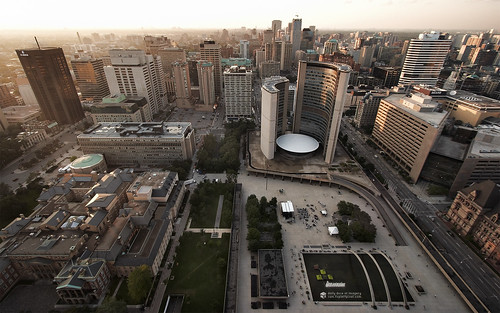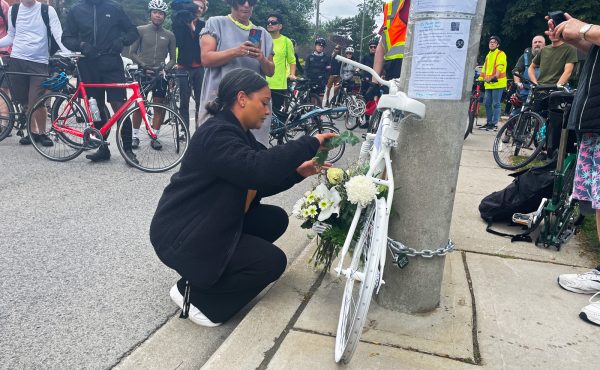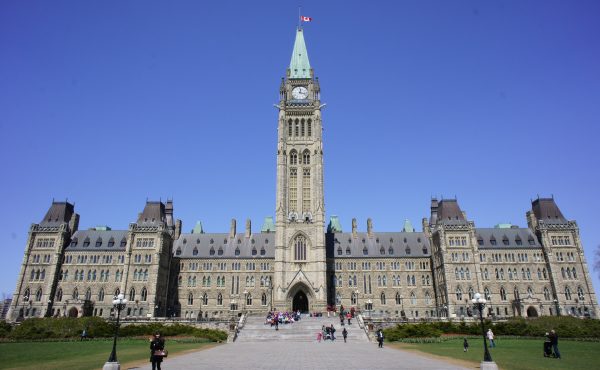
The City of Toronto released its proposed 2007 operating budget today.
Unlike the capital budget, where the city can borrow money, the operating budget (day-to-day operations rather than infrastructure investments) is severely constrained by the limitations of property tax revenue and the requirement to provide some of the costs of provincial cost-shared programs. This situation means that the operating budget is very tight and the city is very reluctant to fund new programs through it.
The budget process has been tightened up considerably this year as a result of the increased powers of the Mayor — there is far less scope for involvement both from the public and from councillors. Martin Koob of the Toronto Coalition for Active Transportation explains the situation:
The 2007 budget process is very different from past years. One key difference is that the Budget Committee and the Executive Committee will be the only committees having deliberations on the budget — that means these Councillors have a significant influence. The other key difference is that there will be just one opportunity for the organizations and the general public to make deputations to advocate for programs and services in the Operating budget. The day for deputations will be on March 29th, 2007 starting at 9:30 am. To sign up to make a deputations in person call 416-392-6662 to get on the list. You can also sent written deputations via e-mail to mmcdonna@toronto.ca or by fax to (416) 392-1879. Of course, you can send an e-mail to your Councillor, the Executive and Budget Committees any time before March 29th.
For the capital budget process, there were very few deputations from the public — it’s important that citizens check to see the status of their favourite programs in the budget, and depute to the budget committee if there is something they want to change.
Unfortunately, it’s even more difficult for citizens to make sense of the operating budget because the excellent “open house” that was held for the capital budget to enable staff to explain items of interest to the public is not being held for the operating budget, leaving citizens less than three days to find out what is happening and comment on it. (The open house was not heavily attended by the public, but that’s because it was hardly publicized at all). It’s hard to see how anyone who isn’t closely connected to city hall would be able to make any kind of complex deputation on the budget, given this process.
ARTICLES ON BUDGET
• Toronto Star, CBC.ca
Supplement: Martin Koob has sent me the hard-to-find web pages with the detailed analyst notes and the briefing notes for the budget. These are essential for working out the details of the proposed budget in specific departments.
photo by Sam Javanrouh




4 comments
This truncated process is a distinct downside to the stronger mayor and the four year term: demockery is a more apt term as it’s near-impossible to get a good sense of it in three days. How do the councillors do it? And broad questions – like is the subsidy to cars needing to be put in as a separate category – languish to our detriment.
**Proposed operating budget means service cuts to libraries**
For anyone who’s considering making a deputation I’d ask you to consider using a bit of your time to talk about the importance of giving the Toronto Public Library the 3.55% increase its asked for instead of the 3% approved by Budget Committee.
The difference is huge while the money required is anything but.
In asking for a 3.55% increase some minor service reductions will still be required. However, to get down to 3% it will require cutting the budget by an additional $940,000.
To get to that number the Library will have to reduce the number of Sundays it is open by 25% (9 Sundays) at 27 branches, 11 of which are in the so-called “priority” neighbourhoods — the areas that City Council has acknowledged has a high level of need but a low level of services provided.
In addition to service-level reductions the Library will have to reduce its Collections budget (used to buy books and other materials) to a level where its buying power would equate to 1993 levels (one of the lowest points in recent decades).
Unfortunately there really are no other places to cut if Council doesn’t provide the money. After amalgamation the Library reduced its staffing levels by 10% and hasn’t increased it since. Yet circulation in just the past five years has increased 20%. At the same time, the Library has been asked to take on more programs and support initiatives like the Community Safety Plan within existing resources.
Libraries are an essential part of every community, and this is especially the case in priority neighbourhoods. In priority neighbourhoods young people are more likely to rely on libraries for the study aides that many kids take for granted, like computer and internet access, encyclopedias, dictionaries and a quiet place to read. Plus, removing 9 days of service during the school year, no matter where a student lives, will hinder their ability to complete school assignments.
In reducing the collections budget the Library will slowly but surely make itself obsolete. It will no longer reflect the needs, interests and culture of the community it serves. That weakens the core of what the Library offers Toronto residents and shouldn’t be taken for granted.
So, as possibly the best combined physical and cultural resource the City has to offer, I’d ask you to give the Library a bit of consideration by either including it in your deputation or taking the time to contact your local councillor.
Below is a list of the libraries that would be affected by service reduction:
Albion (Ward 1)
Richview (Ward 4)
Brentwood (Ward 5)
Eatonville (Ward 5)
New Toronto (Ward 6)
York Woods (Ward 8)
Downsview (Ward 9)
Northern District (Ward 16)
North York Reference (Ward 23)
Don Mills (Ward 25)
Flemington Park (Ward 26)
Fairview (Ward 33)
Barbara Frum (Ward 15)
Maria A. Shchuka (Ward 15)
Albert Campbell (Ward 35)
McGregor Park (Ward 37)
Agincourt (Ward 40)
Goldhawk Park (Ward 41)
Malvern (Ward 42)
Cedebrae (Ward 43)
Parkdale (Ward 14)
Bloor/Gladstone (Ward 18)
Lillian H. Smith (Ward 20)
Toronto Reference (Ward 27)
Parliament (Ward 28)
S. Walter Stewart (Ward 29)
Pape/Danforth (Ward 30)
What really shocks me is the drastic cut to Toronto Public Health. I wonder if there is a particuar reason for this, but it seems like one of the last places that should get less money.
I guess library cuts, overcrowded buses, crumbling roads and property tax hikes are the cost of Greg Sorbara’s balanced budget. Meanwhile we still have to build and operate an underused subway line to his 905 riding. Good job!
Sean Marshall
technically Vaughan are providing the 1/3 capital for the bit above steeles but allocation of operating costs worry me.
My main issue with this budget is that there is expansion of certain areas – media facilities and mayor’s office at city hall, beautiful city etc. while public health and libraries among other things are cut – I would prefer if the mayor was going to bust the 1.9% CPI increase that he go long – ensuring funding to the existing facilities before committing to expansion, even if that meant a 4% or more hike.
I guess we’ll have a pretty city with great PR, just sick and illiterate 🙂